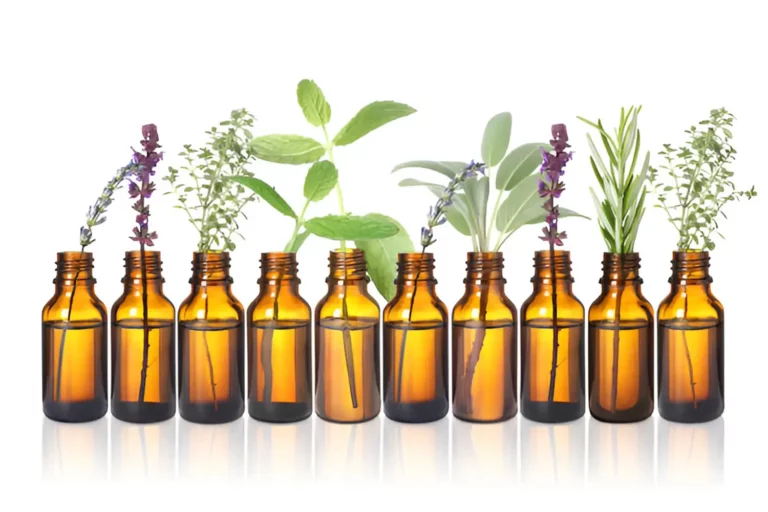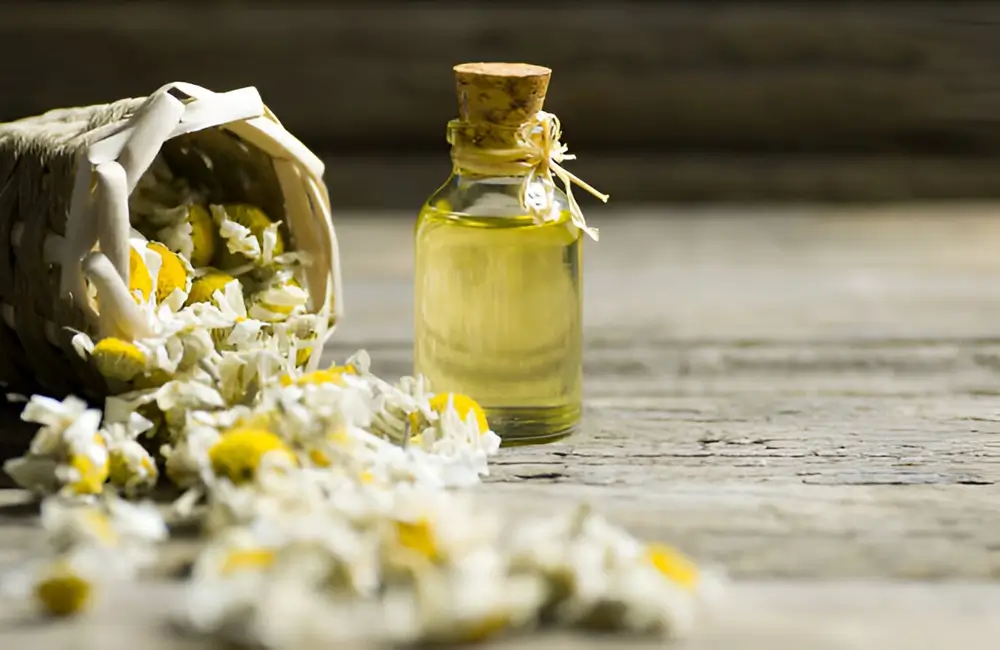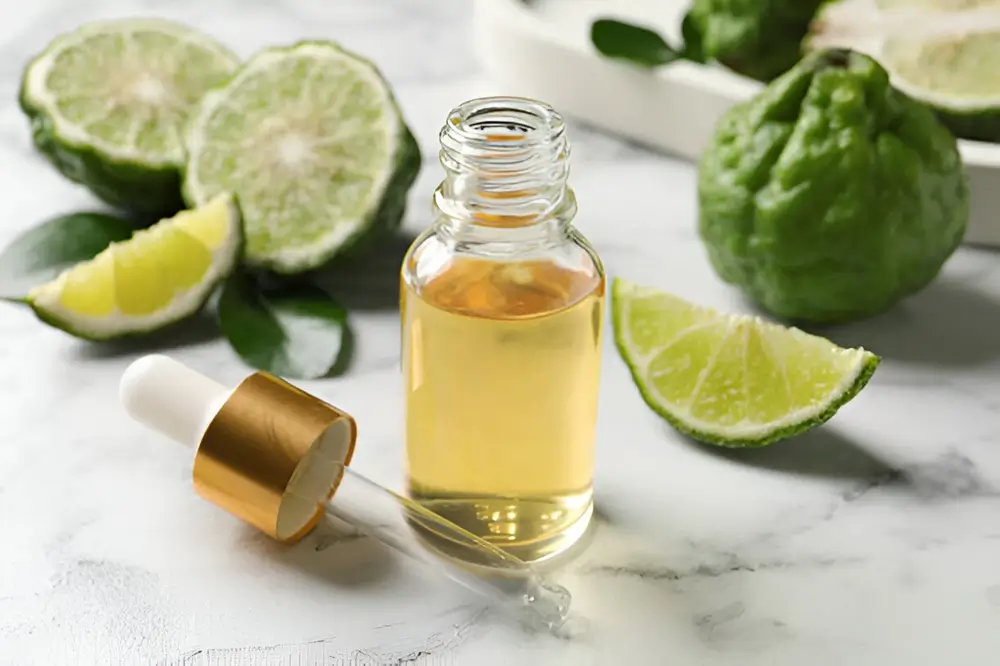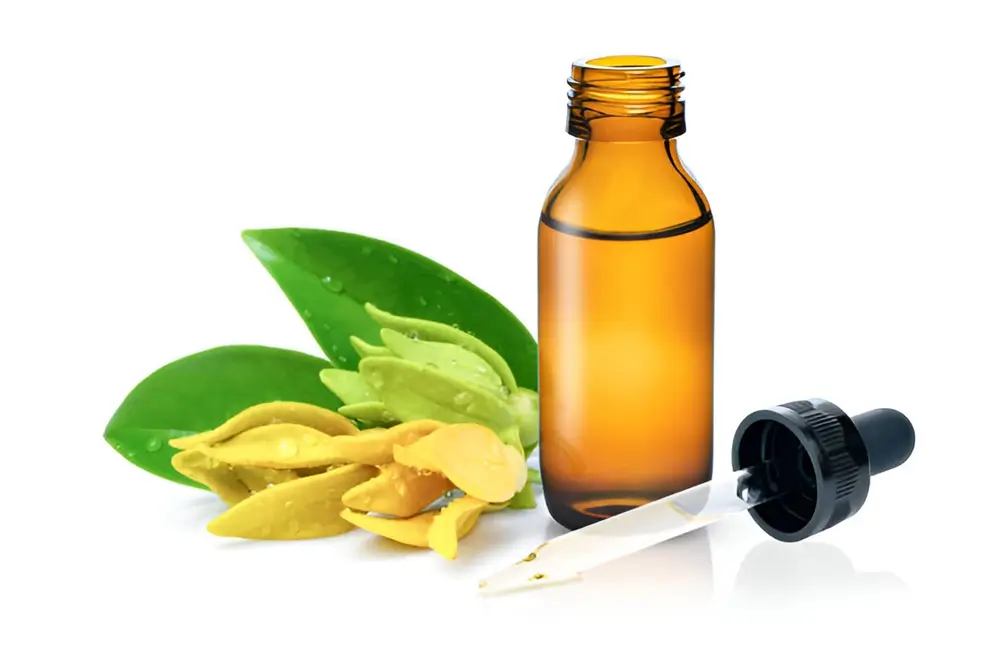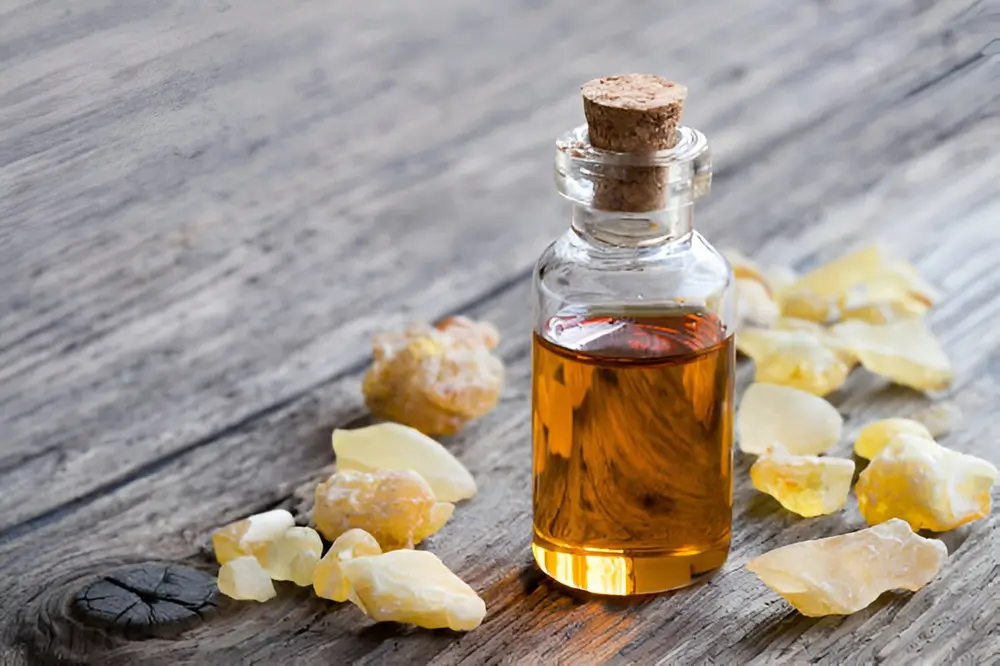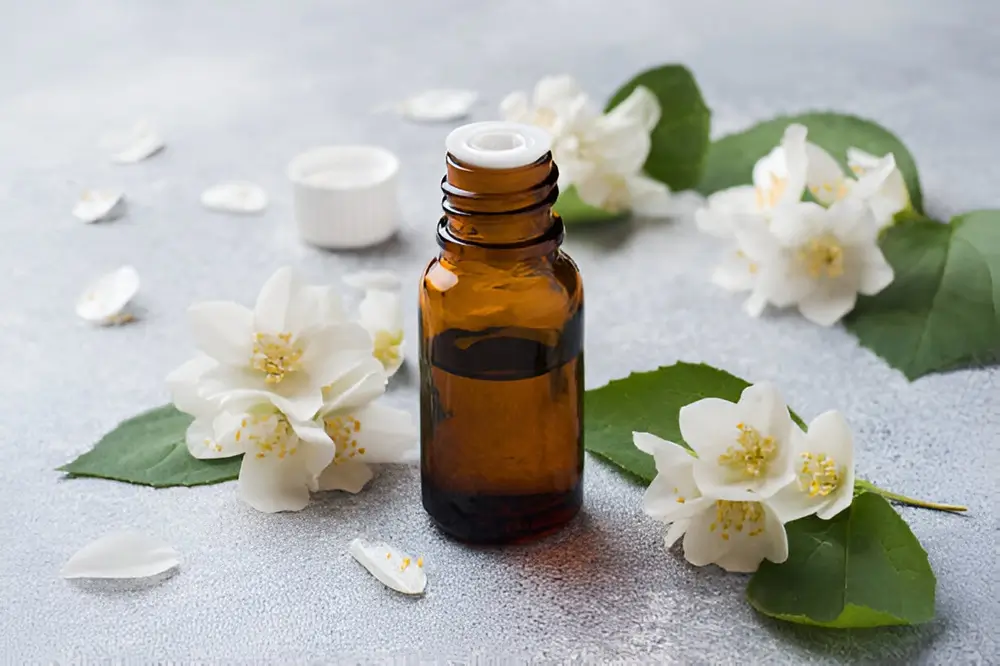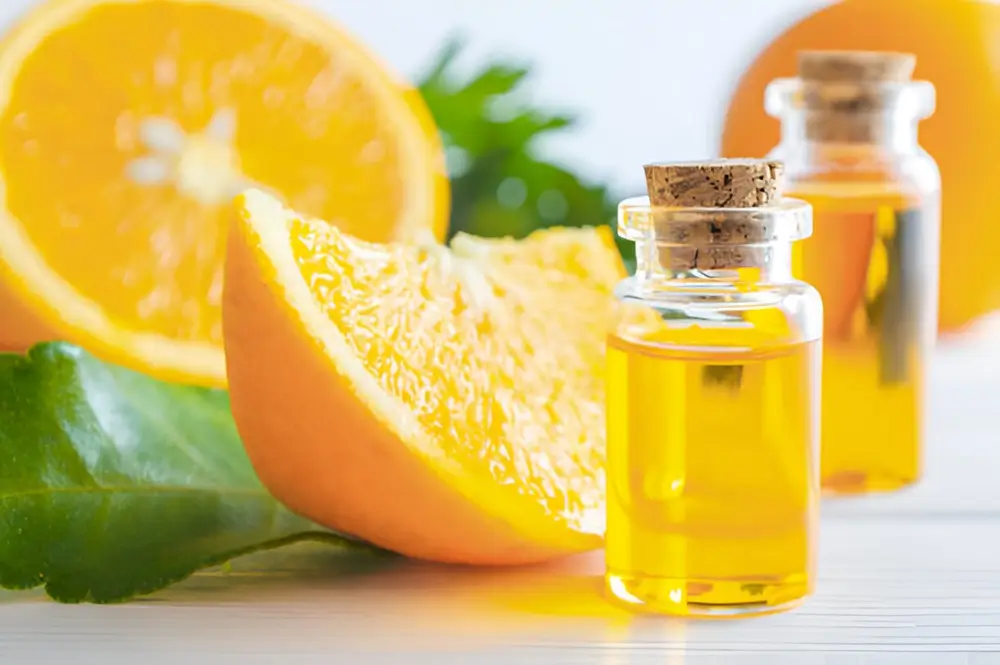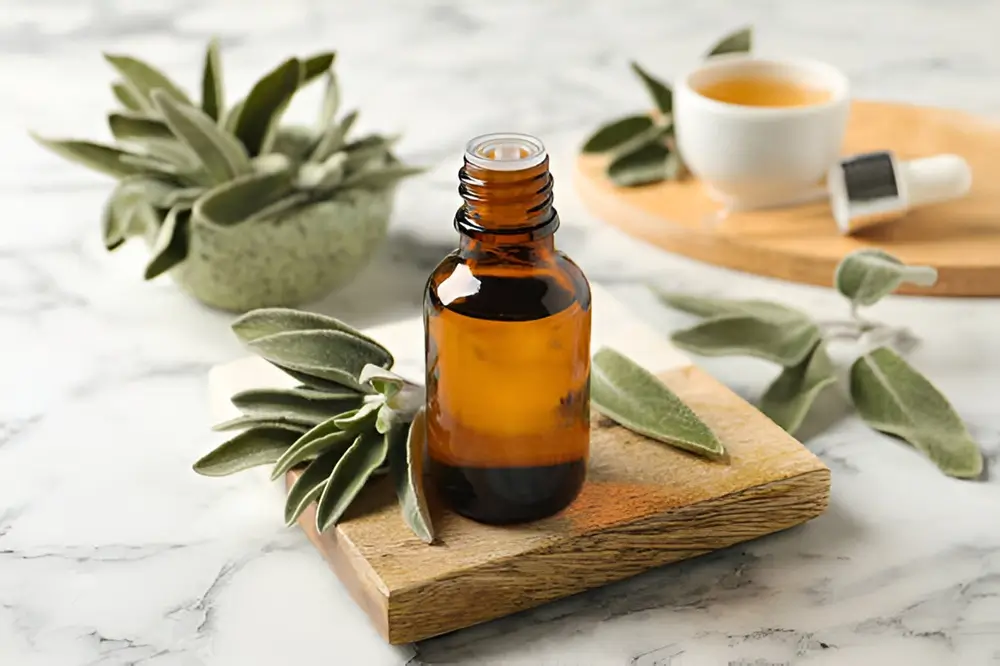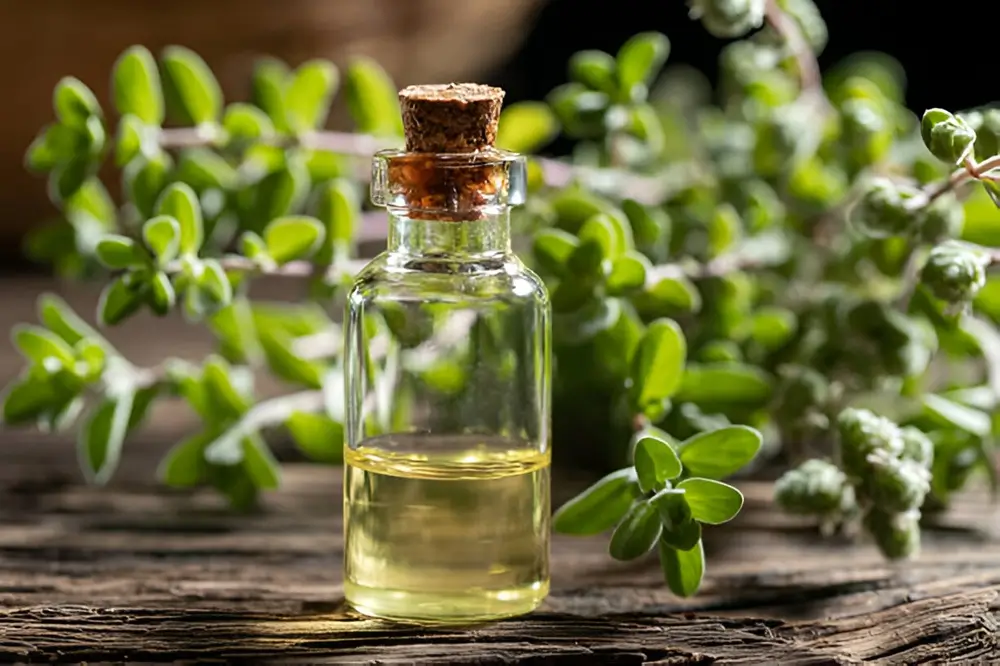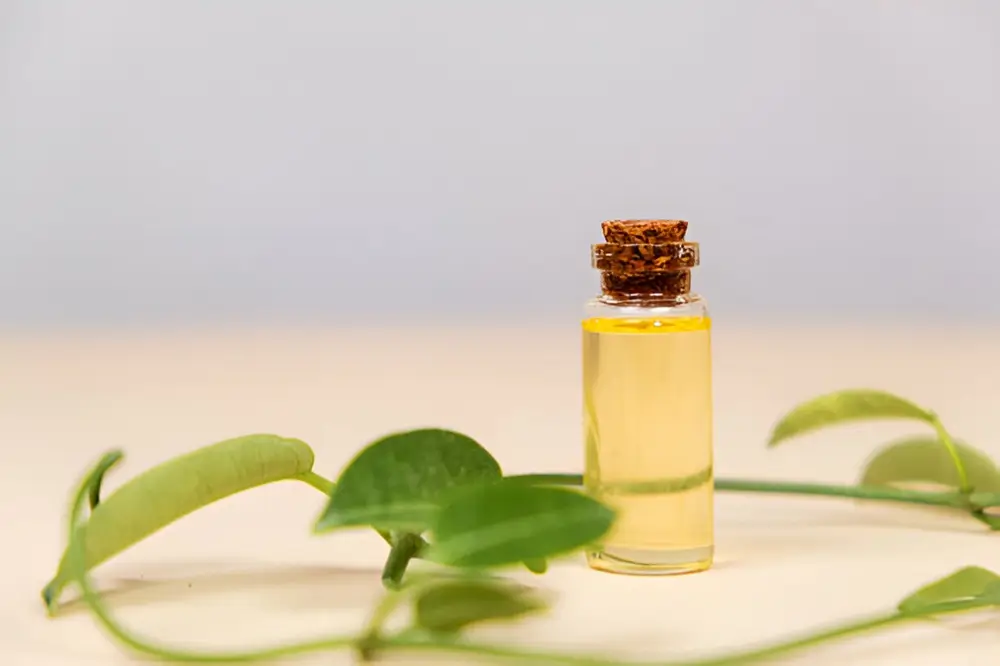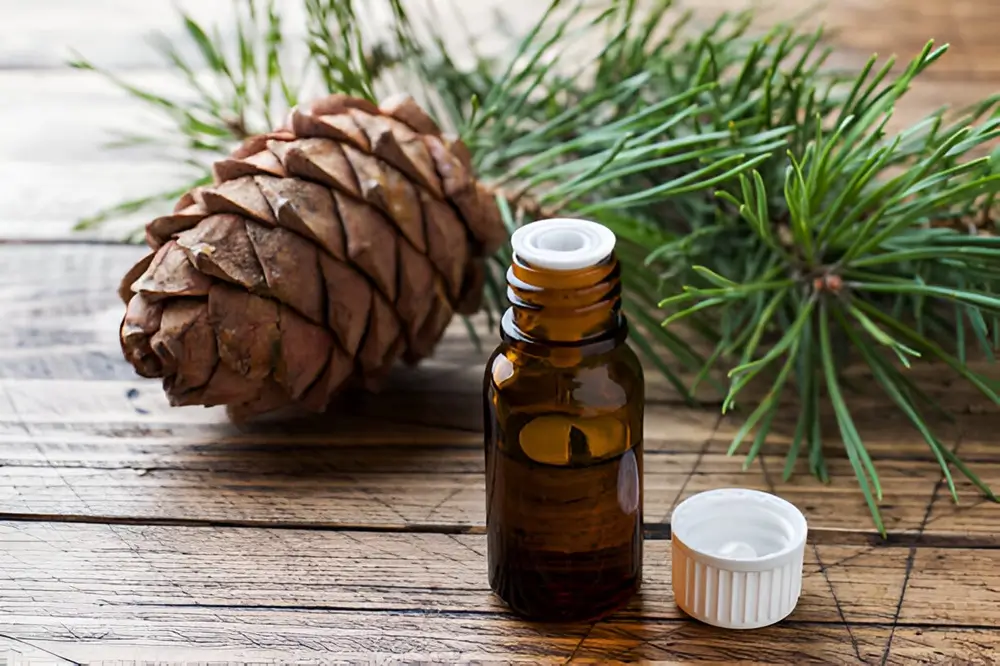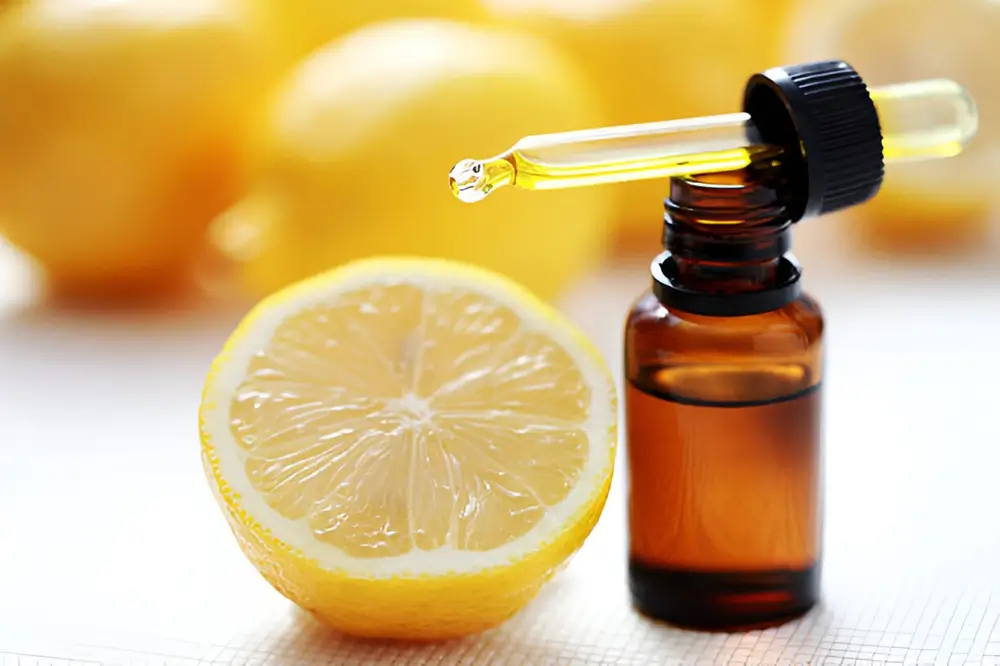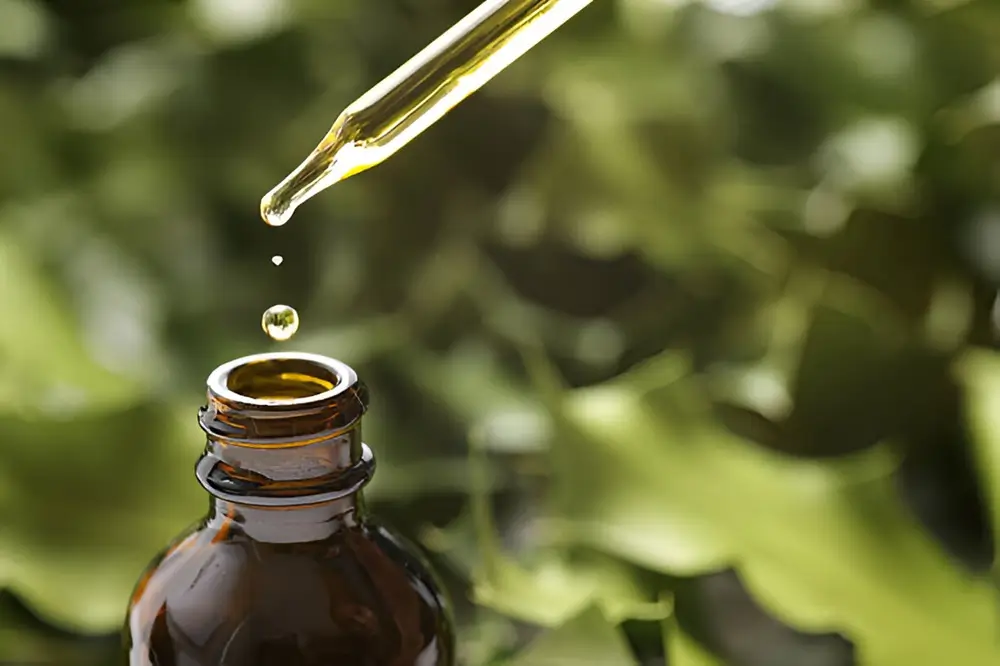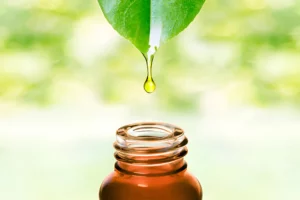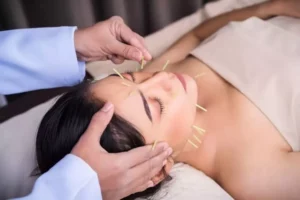What Are Essential Oils?
Given the ever-increasing paces of life and stress levels that people have to cope with, aromatherapy for anxiety can become your perfect tool for naturally controlling your emotions and keeping calm. With several essential oils to choose from, their unique properties may become the ground to distinguish the best option for your needs and expectations.
At our clinic, we combine several methods of addressing the symptoms and roots of depression, anxiety, and other disorders for greater and more tailored efficiency.
Best Essential Oils for Anxiety
These are concentrated plant extracts that make the best aromatherapy for anxiety happen. Derived from fruits, roots, leaves, etc., they are distilled and undergo other processes to be suitable for therapeutic uses. In the case of highly potent substances for direct application on the skin, additional measures like mixing with jojoba, coconut, and other carrier oils is required.
Although more research on uncovering the benefits and limitations of aromatherapy oils for anxiety won’t be extra, its positive effects are already well-known in the market. Consult our experts to consider what type of oil will work in your particular case. Below are the top twelve essential oils for relaxation.
1. Lavender Oil
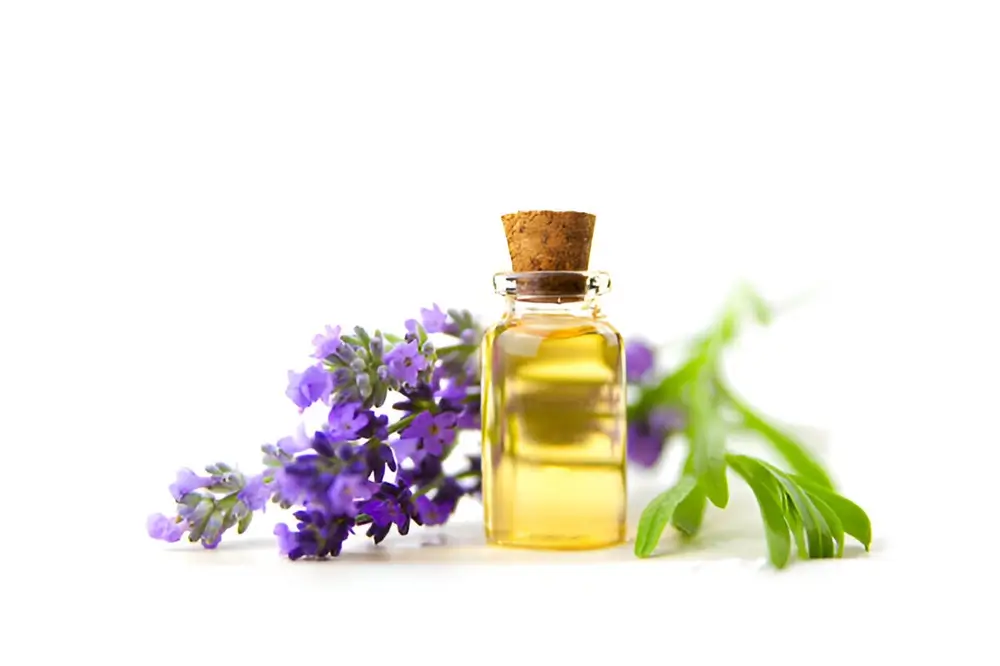
On top of being an effective tool to manage stress and anxiety systems, it is great for skincare routines. With its help, it is possible to enhance the effectiveness of the chosen regimen in treating concerns like eczema and acne.
Its content is rich in various properties, ensuring its quality for multiple health-related concerns:
- antioxidant;
- antinociceptive;
- anti-inflammatory;
- anxiolytic;
- antimicrobial, and other characteristics.
As one of the highly researched products, this essential oil is globally cultivated and easy to use, becoming a top-notch alternative to synthetic medicines.
|
Characteristic |
Details |
Efficiency in Aromatherapy |
|
Source |
Extracted from lavender flowers |
Highly effective for reducing stress and anxiety and promoting sleep |
|
Key Components |
Linalyl acetate and linalool |
For soothing the nervous system |
|
Primary Use |
Stress relief and relaxation |
Often used in diffusers and massage therapy |
2. Chamomile Oil
With regard to a 2017 study, this method can be a useful complement to a personalized strategy for treating GAD (generalized anxiety disorder). It also helps to promote deeper, more pleasant sleep.
This essential oil is useful for a wide range of natural wellness solutions, and we offer a greater level of personalization by considering two kinds of chamomile — it can be derived from different plants, hence their Roman and German versions. Thanks to its properties, the risk of skin irritation and allergic reaction in the treatment course is minimized a lot.
|
Characteristic |
Details |
Efficiency in Aromatherapy |
|
Source |
Derived from chamomile flowers |
Excellent for alleviating tension and promoting calmness |
|
Key Components |
Chamazulene, bisabolol |
Anti-inflammatory and soothing properties |
|
Primary Use |
Anxiety reduction and skin irritation relief |
Ideal for baths and topical application |
3. Bergamot Oil
Although it is more known as a flavorful addition to Earl Gray, its usage range is more impressive than it might seem at first. Our licensed practitioners appreciate this essential oil for its soothing effect.
The use of bergamot can lower anxiety levels, helping patients take control of serum cortisol, heart rate, and blood pressure. Its boosted efficiency can be achieved by blending this oil with lavender and ylang-ylang.
We test it on a small patch of skin to ensure its safety along with additional checks to exclude the risk of allergic reaction. Aside from mental well-being, bergamot oil can contribute to treating psoriasis, acne, and other skin disease symptoms.
|
Characteristic |
Details |
Efficiency in Aromatherapy |
|
Source |
Extracted from bergamot citrus fruit peels |
Effective for boosting mood and reducing anxiety |
|
Key Components |
Limonene, linalyl acetate |
Combines uplifting and calming effects |
|
Primary Use |
Stress relief and mood enhancement |
Commonly diffused or used in blends |
4. Ylang-Ylang Oil
Soothe fearfulness in a time-tested way. Accompanied by acupuncture for anxiety, this solution elevates your sense of well-being, optimism, and courage, helping you build less exhausting mechanisms of coping with stress. According to research, it may be a potent means of treating insomnia, given its performance as a sedative.
In traditional medicine, it will also come in handy as a medicine against gout, stomach ailments, high blood pressure, anxiety, and depression — a great choice for aromatherapy treatment, therefore. Besides, its effect in addressing bacterial and fungal diseases shouldn’t be underestimated.
|
Characteristic |
Details |
Efficiency in Aromatherapy |
|
Source |
Extracted from the flowers of the ylang-ylang tree |
Relaxing and aphrodisiac effects |
|
Key Components |
Germacrene, linalool |
Calms the nervous system and reduces tension |
|
Primary Use |
Stress reduction and emotional balance |
Frequently added to massage oils and diffusers |
5. Frankincense Oil
This option is among underrated essential oils, but its positive effect on chronic stress relief shouldn’t be underestimated. Its unusual aroma works best when blended with lavender and bergamot — a one-to-one ratio is enough.
Also referred to as olibanum, it is a traditional component of Indian, Chinese, and Islamic medicine. At Pulse Acupuncture, our licensed practitioner Marina Doktorman will help you address anxiety concerns with practices that have been tested for generations.
|
Characteristic |
Details |
Efficiency in Aromatherapy |
|
Source |
Obtained from the resin of the Boswellia tree |
Supports relaxation and enhances meditation practices |
|
Key Components |
Alpha-pinene, incensole acetate |
Reduces stress and promotes spiritual grounding |
|
Primary Use |
Anxiety relief and spiritual wellness |
Popular in meditation and holistic therapies |
6. Jasmine Oil
Its roots may be traced back to Ancient Egypt times, proving its time-tested efficiency. In addition, it was also a popular product in Ancient Persia and China and was widely used to navigate insomnia symptoms and treat headaches and migraines.
Despite the efficiency of jasmine and other essential oils, we don’t recommend aromatherapy if you suffer from seizures, epilepsy, or respiratory diseases. Contact us for consultation. Overall, its sought-after effect is how it reduces anxiety without decreasing alertness. It can help you relax and serve as an immune system’s booster.
|
Feature |
Details |
|
Unique Properties |
Enhances mood, acts as an aphrodisiac, and alleviates anxiety |
|
Source |
Extracted from jasmine flowers |
|
Additional Characteristics |
Renowned for its exotic fragrance; widely used in perfumes and skincare for emotional harmony |
7. Sweet Orange Oil
Its refreshing odor will streamline your acquaintance with the product and ensure you get accustomed to its aromatherapeutic efficiency without difficulty. The positive effect of this solution is increased by the mental profile people have about citrus peels, reminding them of holidays and other festive activities. In turn, it does the soothing trick, uplifting the mood and triggering the brain into feeling calm.
Its relaxation qualities are based on how it reduces blood corticosterone levels, providing relief to both mental and physical stress symptoms. According to research, the sweet orange oil also feature anti-cancer and memory improvement effects.
|
Feature |
Details |
|
Unique Properties |
Energizes, elevates mood, and reduces stress |
|
Source |
Extracted from the peel of sweet oranges |
|
Additional Characteristics |
Ideal for diffusers; blends effectively with other citrus and floral oils |
8. Clary Sage Oil
Compared with other essential oils for anxiety and depression, the recommended ratio for its combination with a carrier product is one to four. For DIY solutions, it is effective to take a hot bath with clary sage oil mixed with Epsom salts. Our licensed aromatherapist Marina Doktorman appreciates this solution for its antidepressant and antioxidant effects, making it a multifunctional oil in our clinic’s practices.
|
Feature |
Details |
|
Unique Properties |
Promotes hormonal balance, induces relaxation, and aids sleep |
|
Source |
Obtained from the leaves and flowers of the clary sage plant |
|
Additional Characteristics |
Particularly effective for menstrual discomfort and easing anxiety |
9. Marjoram Oil
Improve your mental health with non-pharmacological means. Its scent offers spice, hay, warm, and bitter-tonic notes with a herbaceous flair. Its blendings with clary sage and lavender are popular practices Pulse Acupuncture sticks to. One of the greatest effects is how this essential oil balances mind and body, offering exclusive benefits to relieving anxiety and depression symptoms.
|
Feature |
Details |
|
Unique Properties |
Eases tension, soothes muscles, and calms the mind |
|
Source |
Extracted from the flowering tops of marjoram plants |
|
Additional Characteristics |
Popular in massage therapy and aromatherapy for stress alleviation |
10. Vetiver Oil
This product’s properties make it a powerhouse-like ingredient for the food, cosmetics, and perfume industries. However, this so-called “Fragrance of the Soil” in the Indian practice has a positive effect on reducing the negative impact of insomnia, depression, and anxiety on your daily life.
Its aroma is pretty earthy and dry and can be compatible with a wide range of odors to enhance aromatherapy benefits — smoky, leathery, floral, and balsamic notes. Based on research, its properties are similar to the diazepam medication.
|
Feature |
Details |
|
Unique Properties |
Provides grounding, emotional balance, and nervous tension relief |
|
Source |
Derived from the roots of the vetiver plant |
|
Additional Characteristics |
Often referred to as the “oil of tranquility”; commonly used in meditation |
11. Cedarwood Oil
This anxiety stress relief tool isn’t as strong and forward as pine, sandalwood, and patchouli aromas. Instead, it features a cooling breeze with a woody and citrus odor profile. The practice of adding it to aromatherapy blends improves sleep, reducing non-rapid eye movement.
|
Feature |
Details |
|
Unique Properties |
Promotes relaxation, sedates, and reduces irritability |
|
Source |
Extracted from cedar tree wood |
|
Additional Characteristics |
Features a warm, woody scent; popular in diffusers for stress relief |
12. Lemon Oil
Its restorative effect reduces cortisol levels, leading to mood-uplifting and improved stress management tactics. It works fast — a proven record of reduced anxiety right before a test, according to a 2022 study.
|
Feature |
Details |
|
Unique Properties |
Boosts mood, refreshes, and counters mental fatigue |
|
Derived from terpinene, pinene, and limonene |
|
|
Additional Characteristics |
Pairs well with lavender and eucalyptus |
Other Essential Oils
The use of essential oils for anxiety may be lacking in terms of the availability of human studies on their efficacy, but certain research has been done to showcase the impact of aromatherapy:
- Rose oil — based on clinical trials, it is a multifunctional solution for minimizing the negative effects of depression, anxiety, and stress, especially for controlling the levels of fear in preoperative instances.
- Neroli — according to a 2022 study, orange blossom has proven to be effective as a pain and anxiety relief non-pharmacological tool, with the suitability to address these concerns during the labor process.
Here are a few more therapeutic-grade essential oils to pay attention to:
- sandalwood;
- jatamansi;
- grapefruit;
- basil;
- lime;
- sweet marjoram;
- geranium.
Do Essential Oils Actually Work for Anxiety?
The effect of aromatherapy for anxiety relief varies from person to person and depends on their sensitivity and intensity of stress response. Chamomile, lavender, bergamot, and other solutions discussed in this guide trigger the body’s mechanisms, streamlining emotion regulatory processes. They provide short-term relief, helping you control stress perception and relax.
Here are some other effects, making both professionals and individuals say “yes” to introducing essential oils to anxiety treatment schemes:
- enhanced sleep quality thanks to its calming effect;
- safe and simple access to the best products at Pulse Acupuncture;
- a holistic approach to wellness support;
- boosted concentration and cognitive function;
- uplifted mood to alleviate negative emotions, mild depression, etc.
How to Use Essential Oils for Anxiety
According to research, inhaling plant-based and safe-to-use oils affects an individual’s emotions by sending signals to the brain, relaxing the amygdala — a part of the larger limbic system responsible for the body’s automatic methods of detecting danger and responding to it.
There are several strategies on how to make the best essential oils for anxiety work:
- dispersing essential oil vapor with a top-quality diffuser into the air;
- directly inhaling essential oils (under our experts’ supervision);
- applying diluted oils to the back of the neck, pulse points, behind the ears, wrists, temples, or chest;
- accompanied by moxibustion techniques;
- spraying diluted oils on bedding for improved sleep quality and comfort.
Safety and Side Effects
Our acupuncture clinic works with pure, high-quality, and safe products (with sterile needles included) with transparent labeling to ensure your comfort and peace of mind when it comes to selecting the best service. We understand the potential risks of using synthetic or impure essential oils for calming anxiety, including diminished efficiency and adverse effects, and establish a safe and credible therapeutic environment for any patient’s needs.
With thorough diagnostics and patch tests, we minimize the potential negative response to inhaling or applying essential oils:
- dizziness and headaches;
- allergic reactions;
- skin irritation;
- asthma attacks;
- interference with medications chosen for your stress-related treatment regimen;
- non-working aromatherapy schemes that aren’t suitable for individuals with certain health concerns or during pregnancy.
Aromatherapy for Anxiety at Pulse Acupuncture
Choosing the right essential oil for sleep and anxiety can assist in addressing the aftermath of behavioral responses behind anxiety, stress, etc. In practice, it is crucial to clarify what triggers your coping strategy and come up with a personalized treatment strategy for long-lasting management. At Pulse Acupuncture, Marina Doktorman, helps patients increase the variety of tools and methods on how to control their state and be able to stay within their comfort zone:
- a wide range of essential oils to choose from;
- stress and anxiety diagnostics to define your coping mechanisms and triggers for a personalized solution;
- deep relaxation along with therapeutic touch;
- 24/7 support from specialists with multi-year expertise in the field.
Contact Pulse Acupuncture now to start your journey to finding your anxiety and stress relief method.
Read also:
- Red Light Therapy for Weight Loss
- What Does Cupping Do for Your Back?
- What is Qi in Chinese Medicine?
-
Marina Doktorman, M.S., L.Ac., is an experienced acupuncturist who obtained her Masters of Acupuncture from the Tri-State College of Acupuncture in New York City in 2001. During her studies, she focused on Chinese Herbology, a branch of Traditional Chinese Medicine (TCM) that utilizes herbs to complement acupuncture treatments. Marina is licensed in both New York (NY) and New Jersey (NJ) and holds a Diplomate of Acupuncture from the National Certification Commission for Acupuncture and Oriental Medicine (NCCAOM), indicating her expertise in the field.


